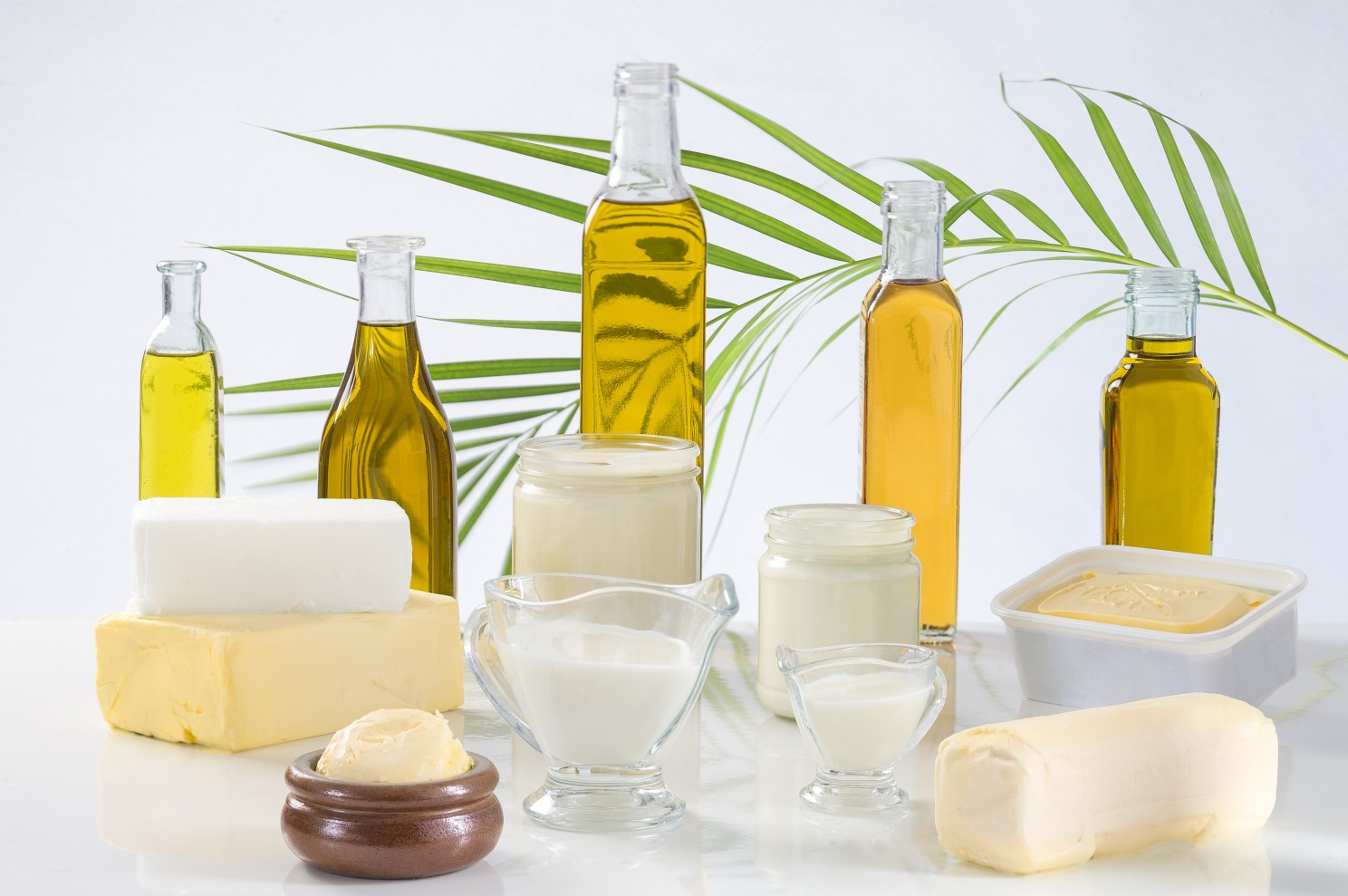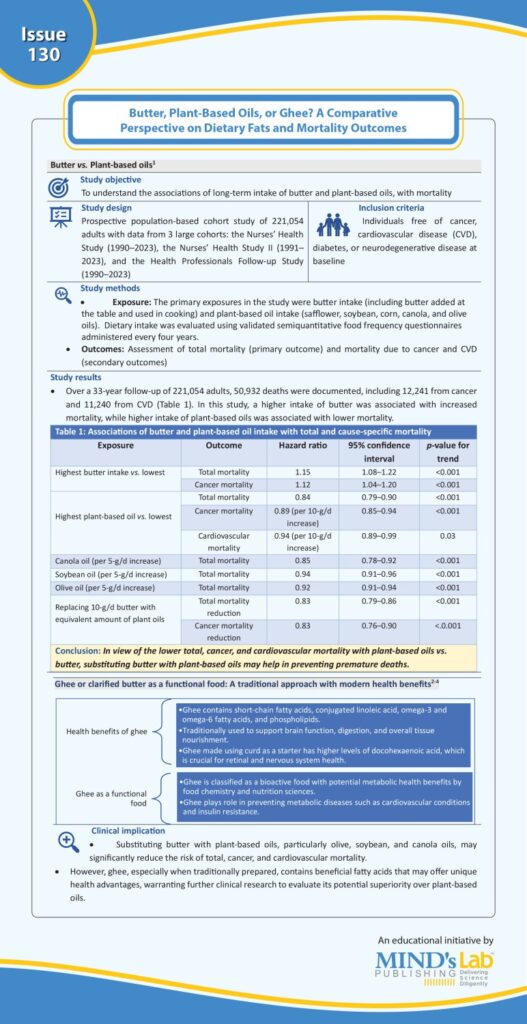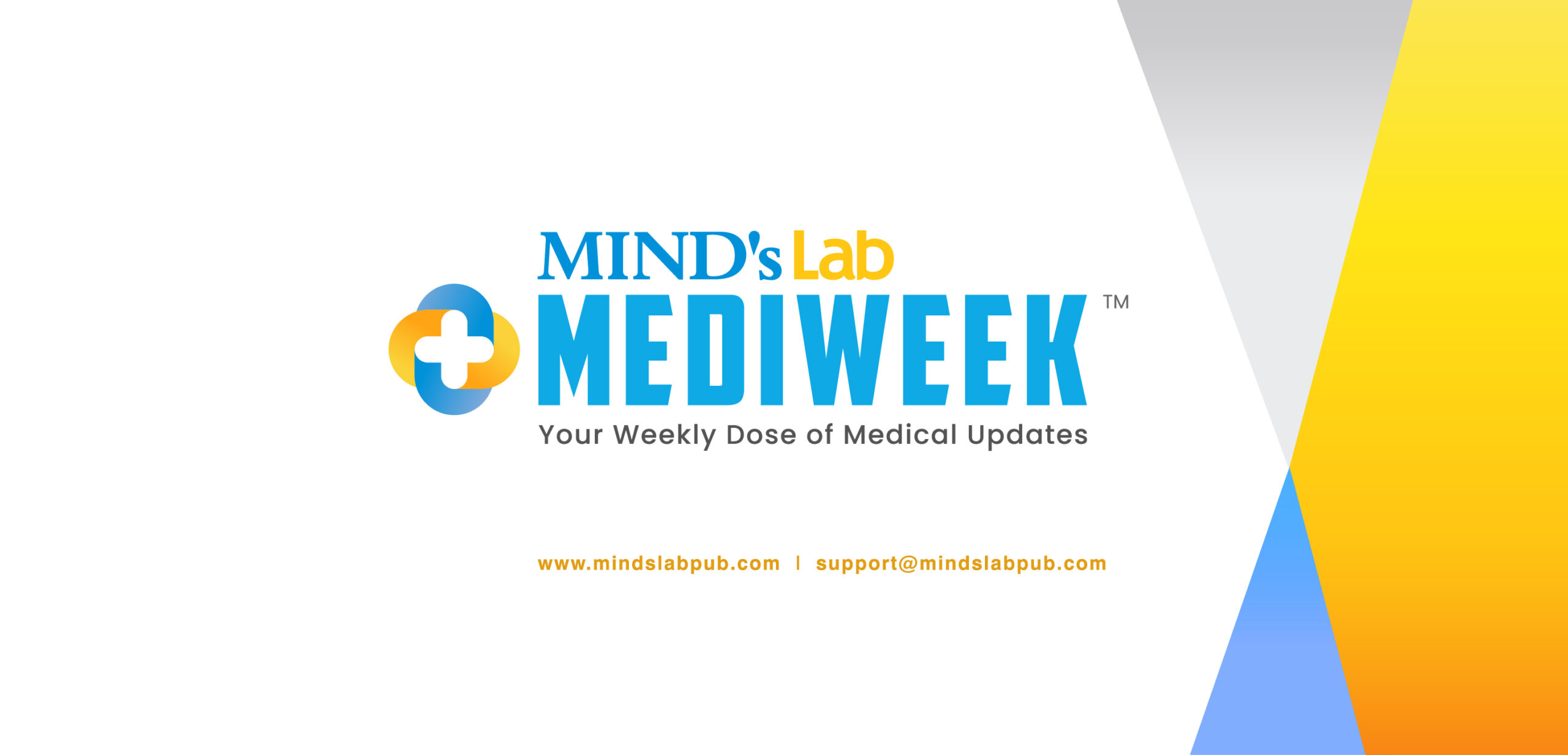
There has been a long-standing debate on the health effects of dietary fats, with contrasting views reflected in the literature. While butter has historically been a staple in many diets, concerns about its association with cardiovascular and cancer-related mortality have led to recommendations favoring plant-based oils. Epidemiological studies suggest that replacing butter with oils such as olive, canola, and soybean may reduce the risk of premature death.
A departure from these recommendations is the traditional dietary practices in South Asia, that emphasize the consumption of ghee (clarified butter) rather than raw butter. Ayurveda and emerging scientific studies suggest that ghee may have unique health benefits due to its distinct fatty acid composition, including short-chain fatty acids, conjugated linoleic acid, and omega-3 fatty acids, which have been linked to improved metabolic and neurological health. This raises an important question: should butter simply be replaced with plant-based oils, or does clarifying butter into ghee offer potential health advantages?
To address this, a large-scale cohort study analyzed the long-term impact of butter and plant-based oils on total and cause-specific mortality, finding that higher butter intake was associated with increased mortality, while plant-based oils were linked to reduced risk of death from cardiovascular disease and cancer. These findings reinforce the current dietary recommendations favoring plant oils over butter. However, an editorial perspective challenges this direct substitution, arguing that the method of butter consumption matters. Traditional ghee, prepared through fermentation and clarification, possesses distinct biochemical properties that may differentiate its health effects from that of conventional butter. This perspective calls for further research comparing ghee and plant oils to determine the optimal dietary fat for long-term health.
Thus, this discussion presents a dual lens—one grounded in modern epidemiological evidence, supporting the use of plant oils over butter, and the other in traditional dietary knowledge, questioning whether clarified butter (ghee) might offer an alternative in respect of health benefits (see Graphic).

(Source: 1. Zhang Y, Chadaideh KS, Li Y, Li Y, Gu X, Liu Y, Guasch-Ferré M, Rimm EB, Hu FB, Willett WC, Stampfer MJ. Butter and plant-based oils intake and mortality. JAMA internal medicine. 2025; Doi:10.1001/jamainternmed.2025.0205; 2. Park YM, Park Y. To butter or replace with plant-based oils, That Is the question. JAMA internal medicine. 2025. Doi:10.1001/jamainternmed.2025.0203; 3. Kataria D, Singh G. Health benefits of ghee: Review of Ayurveda and modern science perspectives. Journal of ayurveda and integrative medicine. 2024;15(1):100819. Doi:10.1016/j.jaim.2023.100819; 4. Joshi KS. Docosahexaenoic acid content is significantly higher in ghrita prepared by traditional Ayurvedic method. Journal of ayurveda and integrative medicine. 2014;5(2):85-88.)
